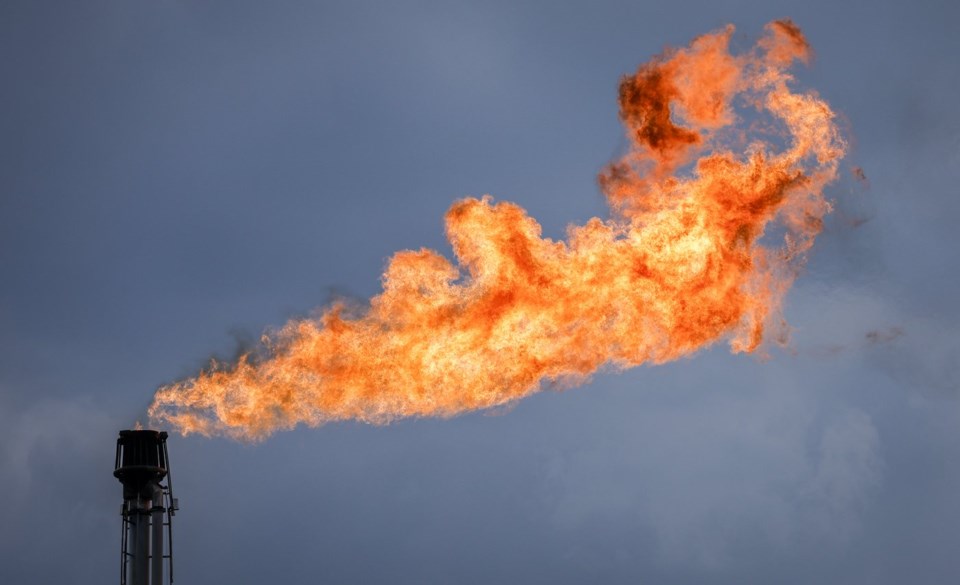EDMONTON — With U.S. tariffs on Canadian goods set to begin Tuesday, business groups say even the reduced tariff on Canadian energy will damage economies on both sides of the border.
U.S. President Donald Trump signed an executive order Saturday to put a 25 per cent tariff on Canadian goods and a 10 per cent tariff on Canadian energy starting Tuesday.
Scott Crockatt at the Business Council of Alberta says there is some relief from the oil and gas sector that they will see a lower levy, but tens of thousands of Canadian jobs are now in jeopardy.
"No victory dances are being done," he told The Canadian Press.
"It's not entirely clear where the pain of the tariffs will fall," he said, adding it could be felt throughout the chain, hitting upstream producers, refiners and consumers.
Crockatt said some kind of response from the Canadian government is necessary, but he is cautioning against retaliatory tariffs that might cut off or tax Canada's oil and gas exports.
Energy products represent Canada's biggest export to the U.S., and it is the industry Alberta's government most relies on for revenue.
"Seeing that energy has been has been less hit in today's announcement, we should absolutely resist the temptation to then hit it twice as hard on the Canadian side. That would just be the wrong thing to do for the long term for Canada," said Crockatt.
He added the lowered tariffs on energy appear to be a recognition that they won't be cost-free for Americans.
"I think we can view that as at least somewhat positive -- that they're tethered to economic reality."
Lisa Baiton, president and CEO of the Canadian Association of Petroleum Producers, said in a statement Saturday it is difficult to predict how the oil and gas tariff will impact supply, demand and trade.
"These tariffs undermine our mutually beneficial relationship and are likely to increase costs and inflation for American consumers while damaging the economies of both countries," she said.
Kendall Dilling, president of the Pathways Alliance group of oilsands companies, said in a statement Trump's lower tariff on energy reflects the importance of the energy relationship between the two countries.
"However, the 10 per cent tariff will still raise costs for gasoline, aviation fuel and other energy sources used in the United States and significantly hurt Canada’s economy," he said, adding that Canada's inability to build pipelines to other markets has left it vulnerable to these kinds of threats.
He urged the federal government to avoid making the situation worse by restricting energy trade or imposing export tariffs in response.
The Explorers and Producers Association of Canada said in a statement the incoming tariffs will affect both the Canadian and U.S. economies and increase energy costs to all Americans.
"Canadian government officials should continue their positive work to address concerns outlined by the U.S. Administration -- focused on border security -- and adopt a measured approach to any response, which does not increase negative impacts to the economy," it said.
Alberta Premier Danielle Smith echoed many of those concerns in her own statement Saturday, saying there is "no economic justification" for Trump's tariffs.
She said Alberta will continue to "strenuously" oppose any effort to ban exports to the U.S. or to tax goods leaving Canada for the U.S., but will support a "proportionate response" targeted at U.S. goods that are more easily purchased from Canada and non-U.S. suppliers.
Smith also partly attributed the reduced oil and gas tariff to the advocacy of her government and the energy industry south of the border.
She and her team have been on a diplomatic charm offensive in recent months to persuade Trump to back down on his tariff threats, and has been highlighting her government's efforts to beef up border security.
Trump said the tariffs are in response to what he calls the illegal flow of fentanyl and people across the border.
The volume of drugs and people crossing from Canada into the United States is miniscule compared to Mexico. U.S border statistics show less than one per cent of all fentanyl seized comes from the northern border.
This report by The Canadian Press was first published Feb. 1, 2025.
Lisa Johnson, The Canadian Press

